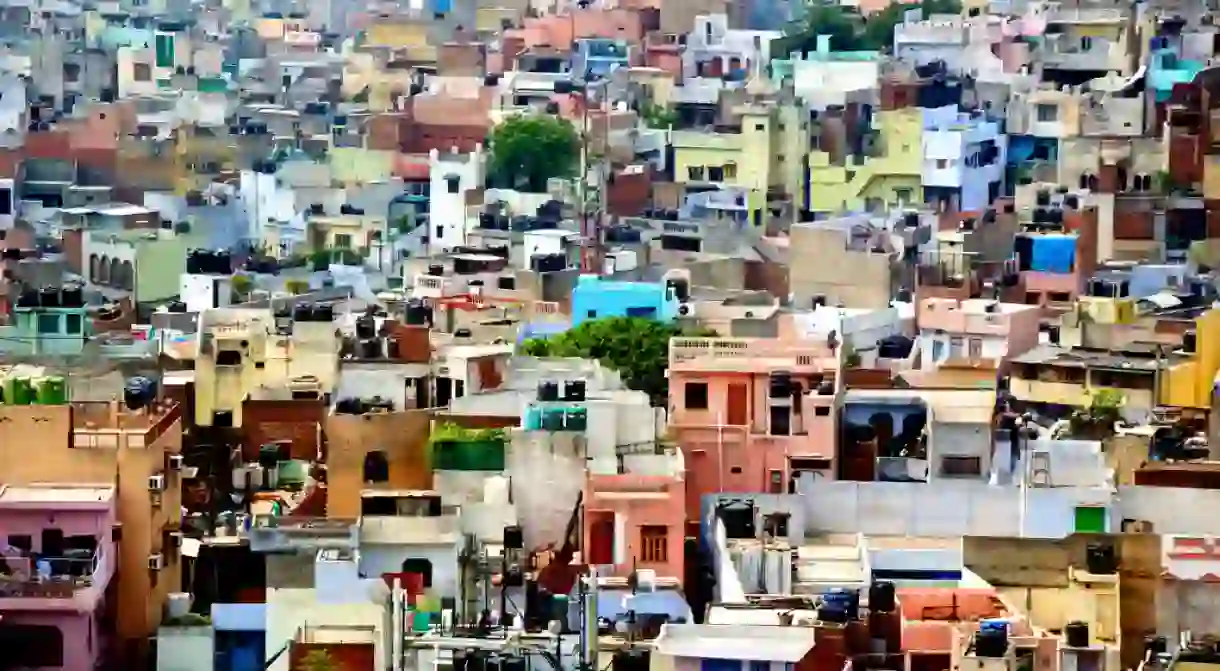A Historical Tour Around Old Delhi

Old Delhi is a walled part of New Delhi, founded by Mughal Emperor Shah Jahan in 1639 and originally named Shahjahanabad. It remained the capital of the Mughals until the end of the Mughal dynasty and was later rechristened Old Delhi by the British. It offers spectacular pieces of architecture, a mouthwatering variety of food, and a living, breathing piece of history.
Old Delhi Food
Food is a religion in this city. The narrow gullies of old Delhi have an overwhelming variety of cuisines to offer. The heavenly aroma of food literally liberates the taste buds here. Acclaimed by national and international food guides, the food will never fail to tempt you. The cuisine is generally dominated by meat, and also offers delicious hot parathas, chats, and sweets. The famous Paranthe Wali Gali is a narrow street located in Chandni Chowk and has a series of shops offering parathas, a fried Indian bread which is stuffed with fillings and served with mint chutney, tamarind chutney, pickles, and curries. Over 30 variety of parathas are available. The Ghantewala Halwai is one of the oldest sweet shops in India, founded in the year 1790. It is famous for its sohan halwa and Karachi halwa along with badaam barfi, kalakand, pista samosa and mootichoor ladoo.
Chandni Chowk and Chawri have many street joints that offer spicy and tangy chaats, dahi bhalle, tikki, kulle fruit chaat, and phirni (a sweet dish). Karim’s Place is very famous for its kebabs. It is situated in the area of Jama Masjid. It was established by Haji Karimuddin with the idea of opening a dhaba in 1913. All meat lovers must make a pit stop at Karim’s for their wonderful kebabs and divine mutton nahari.

Old Delhi Architecture
Old Delhi architecture is a spectacular example of Mughal architecture, with plenty of charisma and nostalgia. While walking the bylanes of old Delhi you realize every wall has a story to tell. Old Delhi is a walled city shaped roughly like a quarter circle with the Red Fort as a focal point. The old city was surrounded by a wall enclosing about 1500 acres with 14 gates. Although the walls have largely disappeared, most of the gates are still present.
The Red Fort is named for its massive walls of red sandstone and its proximity to the Salimgarh Fort. It was a political and ceremonial center for the Mughals. Constructed in 1648 by Shah Jahan, the architecture reflects the fusion of Persian and Timurid traditions, along with a huge beautiful garden. It was designated a UNESCO World heritage site in 2007. The Red Fort has an area of 254.67 acres enclosed by 2.41 kilometers of defensive walls, punctuated by turrets and bastions varying in height from 18 meters on the river side to 33 meters on the city side. The fort is octagonal, with the north-south axis longer than the east-west axis. The marble, floral decorations and double domes in the fort’s buildings exemplify later Mughal architecture.

Located in Chandni Chowk, Jama Masjid is one of the largest mosques in India. Built by Mughal Emperor Shah Jahan between 1644 and 1656 at a cost of one million rupees, it has three gates, four towers, and two 40m high minarets constructed of strips of red sandstone and white marble. The mosque is built on a red sandstone porch which is about 30 feet from ground level. The courtyard can accommodate 25,000 people. The Red Fort stands opposite to Jama Masjid. The floor is covered with white and black ornamented marble to look like a Muslim prayer mat. Beside it, a thin black border is marked for worshippers.

The immense culture of Old Delhi never loses its charm, giving us a window to look into history.













